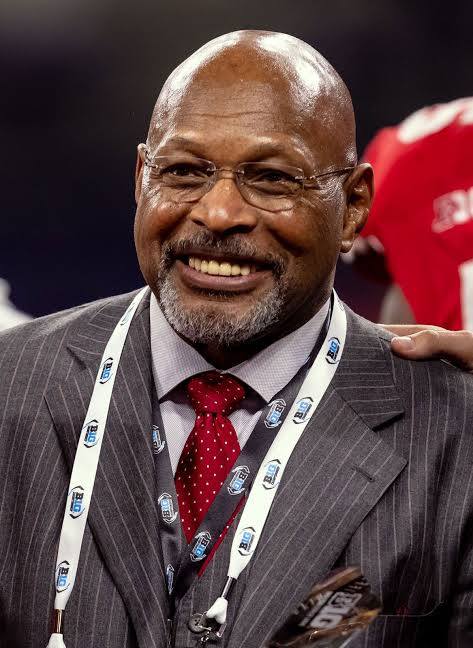
In a recent ESPN poll, Ohio State’s legendary running back Archie Griffin has been voted the greatest college football player of all time, a title that further solidifies his place in the annals of football history. Griffin’s unprecedented achievement, which saw him surpass other college football icons such as Herschel Walker, Tim Tebow, and Earl Campbell, is a testament to the lasting legacy of his contributions to the sport. This recognition also sparks debates about what it truly means to be the “greatest” in college football, examining both on-field performance and the broader context of their influence on the game.
Archie Griffin: The Untouchable Legend
Archie Griffin’s career at Ohio State remains unparalleled in college football history, most notably because he is the only player to win the prestigious Heisman Trophy twice. First achieving the honor in 1974 and then again in 1975, Griffin set the standard for excellence on the gridiron and has remained a symbol of Ohio State’s football program for decades.
Griffin’s first Heisman victory came after a season in which he rushed for 1,577 yards, a significant feat during an era when college football offenses were often more reliant on the passing game. But Griffin’s second Heisman win, which occurred just a year later, cemented his place as one of the sport’s all-time greats. His consistency, durability, and performance on the field were unmatched, as he amassed a career total of 5,177 rushing yards over four years at Ohio State. To this day, Griffin holds the school’s record for career rushing yards, a remarkable accomplishment given the number of outstanding players that have come through the program since his time.
Griffin was known not just for his athleticism, but for his work ethic and leadership, qualities that made him a model for future generations of players. His ability to carry Ohio State’s offense was instrumental in their dominance during the 1970s, particularly in their battles with Michigan, where Griffin’s performances became the stuff of legend. His impact on college football extended beyond just the numbers he put up on the field; he became a cultural icon whose image was closely associated with the Buckeyes’ success.
The Rivalry: Griffin vs. Herschel Walker
When discussing the greatest players in college football history, it’s impossible to overlook the name of Herschel Walker, the powerhouse running back who starred at the University of Georgia from 1980 to 1982. Walker, much like Griffin, was a transcendent talent who could take over a game in an instant. His blend of size, speed, and power made him a unique force in college football, and his legacy is deeply etched into the fabric of Georgia’s football history.
Walker’s college career was marked by a dominant run in the early 1980s, where he led the Bulldogs to a national championship in 1980. His career rushing total of 5,259 yards (which Griffin would ultimately surpass in 1981) stood as a benchmark in college football for many years. Walker also won the Heisman Trophy in 1982, further solidifying his place in college football’s elite.
The rivalry between Griffin and Walker in the eyes of fans and analysts often came down to a battle of styles: Griffin was the epitome of grace and agility as a running back, while Walker embodied raw power and athleticism. In many ways, the comparison between these two greats highlights the differing ways in which greatness can manifest on the field. Some fans gravitated toward Griffin’s consistency and finesse, while others marveled at Walker’s sheer dominance and physical presence.
Despite Walker’s extraordinary accomplishments, Griffin’s dual Heisman victories and his sustained excellence throughout his college career ultimately gave him the edge in this race for the title of greatest of all time. Griffin’s achievement of being the only player to win the Heisman twice is a record that is unlikely to be broken, which played a significant role in cementing his status at the top of this list.
Tim Tebow: The Unstoppable Force of the 2000s
Fast forward to the 2000s, and one name comes to mind when discussing the best college football players of the modern era: Tim Tebow. The Florida Gators’ quarterback, known for his leadership, incredible physicality, and clutch performances, became the face of college football during his time in Gainesville. Tebow led Florida to two national championships (2006 and 2008) and won the Heisman Trophy in 2007, becoming one of the most iconic players in the sport’s history.
Tebow’s legacy was not built solely on his individual achievements but also on his ability to inspire his teammates and win when it mattered most. His leadership on and off the field was unparalleled, and his electrifying performances in key games—such as his heroic efforts in the 2006 SEC Championship Game and the 2008 BCS National Championship—cemented his place as one of the most influential players of his era.
However, while Tebow’s college career was nothing short of remarkable, his Heisman win came during a period of great competition, including other star players such as Oklahoma’s Sam Bradford and Arkansas’s Darren McFadden. Tebow’s success and his larger-than-life personality, however, made him one of the most beloved figures in college football. While his NFL career never fully matched his college success, his impact on college football remains undeniable, and he is often cited as one of the top players of the 2000s.
Earl Campbell: The Big Hitter from Texas
Another giant in the conversation of college football’s greatest players is Earl Campbell, the former running back for the University of Texas. Known for his punishing running style and ability to dominate defenses, Campbell’s college career was a force to be reckoned with. He won the Heisman Trophy in 1977 and became the centerpiece of Texas’ offense during the late 1970s.
What set Campbell apart from other running backs of his era was his combination of speed, power, and agility. He was a true workhorse, often carrying the ball 30 or more times a game and routinely breaking tackles with his impressive lower-body strength. During his time at Texas, Campbell amassed 4,443 rushing yards, and his style of play left an indelible mark on the sport. He is often considered one of the most physical players in the history of college football, and his impact on the game can still be seen in the way modern running backs are trained to combine strength with speed.
However, much like Walker, Campbell’s place in the greatest player debate is influenced by his overall lack of postseason success. While his individual brilliance was undeniable, Campbell’s Texas teams were not always able to convert their regular-season dominance into championships. Nonetheless, Campbell’s Heisman victory and his impact on the college football landscape make him a worthy contender in any debate over the greatest players of all time.
The Debate: What Does it Mean to Be the Greatest?
The question of who is the greatest college football player of all time is more complex than simply comparing statistics. Many factors come into play when making such a determination, including individual records, team success, leadership qualities, and the impact the player had on the game. Griffin’s dual Heisman victories, his consistency, and his ability to dominate college football for four years make him a compelling choice for the top spot, especially when considering that no other player has won the Heisman twice.
However, the title of “greatest” is subjective, and different fans and analysts may have different criteria for what constitutes greatness. Some might prioritize individual records, while others might place greater importance on postseason success and championships. For some, the greatest college player is someone who transformed the game, while for others, it’s about consistent dominance over a long period of time.
Griffin’s Enduring Legacy
Archie Griffin’s achievement of being voted the greatest college football player of all time, surpassing icons such as Herschel Walker, Tim Tebow, and Earl Campbell, is a remarkable recognition of his sustained excellence and unparalleled impact on the sport. While debates will undoubtedly continue regarding the greatest player, Griffin’s place at the top serves as a tribute to his legacy, and his accomplishments will continue to inspire future generations of college football players.
Griffin’s story is one of hard work, perseverance, and an unwavering commitment to excellence. He may have been surpassed by many legendary players in the NFL, but in the world of college football, his place at the top is secure. In an era where records are frequently broken and new talents constantly emerge, it’s important to remember the players who paved the way for future generations, and Archie Griffin remains at the forefront of that list.





